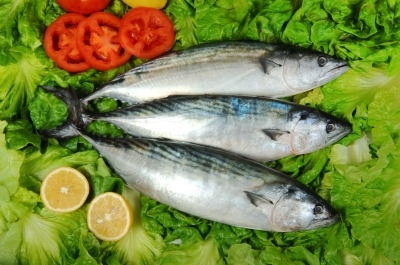
Traditionell japansk kost från 1975 har i studier på både människor och möss visat sig kunna motverka fetma och förbättra hälsan.
Japansk mat som var typisk för 45 år sedan, 1975, visade sig ge försöksmöss halverad bukfetma jämfört med maten som japaner äter nu. Mössen hade betydligt mindre risk för diabetes och fettlever, de var piggare i huvudet och levde 20 procent längre. Nu är möss inte gjorda för människomat, men även en uppföljande studie på människor visar liknande resultat. Först testades kosten på ett 30-tal överviktiga försökspersoner och sedan lika många normalviktiga.
Personerna i studien fick färdiga maträtter hemkörda. De som åt 1975-maten tappade mellan tre och sex kilo i vikt. Dessutom förbättrades blodsockernivåerna, kolesterolnivåerna förbättrades så att HDL ökade och LDL minskade. Även tarmfloran påverkades positivt.
1975 var kosten betydligt mer varierad än idag, med mycket grönsaker, frukt, syrade grönsaker och havsmat som alger och fisk. På den tiden dracks dessutom knappt någon läsk och juice.
“In our previous study, the health benefits of the 1975 Japanese diet were shown to be the highest, since the diet suppressed visceral and liver fat accumulation, and hyperglycemia. In addition, the 1975 Japanese diet promoted maintenance of learning memory ability and a lengthened life span. However, the effect of the 1975 Japanese diet has not been ascertained in humans. In the current study, a diet with the characteristics of the 1975 Japanese diet was prepared to examine if this diet is beneficial for human health. The purpose of this randomized controlled trial was to determine effects of the 1975 Japanese diet (JD) in comparison with a modern Japanese diet (MD). Subjects aged 20~29 years old were randomly assigned to the MD (n=16) and JD (n=16) groups. Each subject consumed the diet three times a day for 28 days. Changes in physical conditions, including body composition and blood biochemistry, from before to after the study period were evaluated. As a result, body weight (p < 0.05), body fat percentage (p < 0.05), body fat mass (p < 0.05), serum triglyceride level (p < 0.05), and serum low-density lipoprotein cholesterol level (p < 0.05) were significantly decreased and serum high-density lipoprotein cholesterol (p < 0.05) and serum magnesium levels (p < 0.05) were significantly increased in JD group. These results showed that a diet with the characteristics of the 1975 Japanese diet has a beneficial effect on lipid metabolic parameters.“
https://www.ncbi.nlm.nih.gov/pubmed/29710042
https://www.ncbi.nlm.nih.gov/pubmed/26431631
https://sverigesradio.se/sida/artikel.aspx?programid=406&artikel=7406375

Lämna ett svar